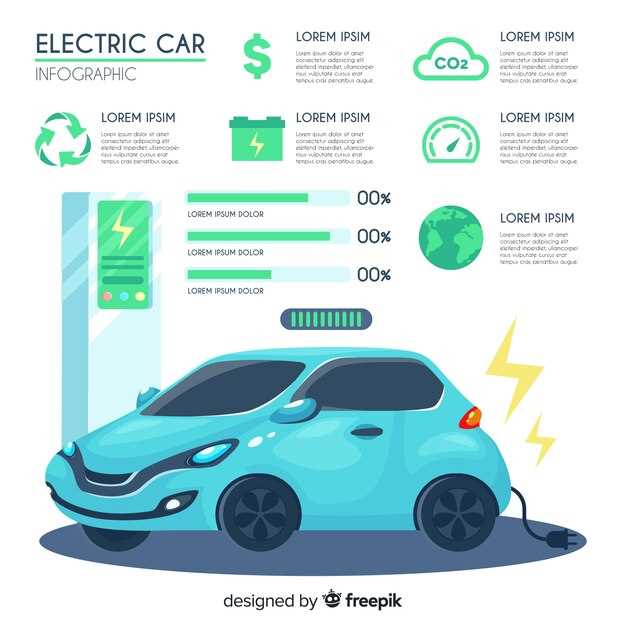
The arrival of hybrid vehicles has transformed the automotive landscape, presenting drivers with options that promise enhanced fuel efficiency and reduced emissions. Among the leading contenders in this segment are the Toyota Prius and Hyundai Ioniq. Both models have garnered attention for their eco-friendly credentials and innovative technologies, yet they each bring unique characteristics to the table. Understanding these differences is essential for consumers looking to make an informed decision.
The Toyota Prius, a pioneer in the hybrid movement, has long been synonymous with fuel efficiency. Its hybrid system optimizes performance, delivering impressive mileage that appeals to environmentally conscious drivers. The Prius combines practicality with a distinct aerodynamic design, ensuring both functionality and style. On the other hand, the Hyundai Ioniq, a newer entrant in the hybrid market, emphasizes versatility and modernity. It offers a range of options, including all-electric and plug-in hybrid variants, making it a flexible choice for various lifestyle needs.
Each vehicle excels in specific areas: while the Prius is celebrated for its reliability and established reputation, the Ioniq stands out with a more youthful design and advanced technology features. This article aims to delve deeper into the key aspects of both models–fuel efficiency, interior comfort, safety ratings, and overall value–to provide a comprehensive comparison that can guide potential buyers in their quest for the perfect hybrid car.
Fuel Efficiency: A Detailed Breakdown of Prius vs. Ioniq

When it comes to fuel efficiency, the Toyota Prius and Hyundai Ioniq stand out as leaders in the hybrid vehicle market. Both cars are designed with eco-conscious drivers in mind, offering impressive miles per gallon (MPG) ratings, but they achieve this efficiency through different technologies and engineering philosophies.
The Toyota Prius has been synonymous with hybrid technology since its launch, boasting various iterations that have continually improved its performance. The latest model of the Prius typically achieves around 52 MPG in combined driving conditions, with some variations depending on specific configurations and driving habits. The efficiency is attributed to its well-engineered aerodynamic shape and a robust hybrid powertrain that includes a 1.8-liter four-cylinder engine paired with an electric motor.
On the other hand, the Hyundai Ioniq presents a strong competitor in the hybrid market. The Ioniq Hybrid generally offers a higher combined fuel efficiency, averaging around 58 MPG. This achievement is largely due to its lightweight design and an efficient powertrain that includes a 1.6-liter four-cylinder engine along with a more advanced electric motor system. Notably, the Ioniq’s powertrain is tuned for efficiency, which contributes to its strong performance in city driving experiences.
Additionally, the Ioniq Hybrid supports a unique feature: a highly efficient regenerative braking system that aids in energy recovery and contributes to its impressive MPG ratings. This system is designed to harness energy that would otherwise be lost during braking, effectively extending the vehicle’s range and reducing overall fuel consumption.
In terms of driving experiences, the Prius offers a more familiar hybrid feel, with a focus on smooth, consistent acceleration. The Ioniq, while also providing a refined driving experience, gives a more engaging ride with responsive handling, which some drivers might prefer.
Overall, while both the Toyota Prius and Hyundai Ioniq excel in fuel efficiency, the Ioniq often edges out with superior MPG ratings. Ultimately, the choice between the two may come down to individual preferences regarding driving dynamics and additional features. Each model has its strengths that cater to different aspects of fuel-efficient driving, making them both noteworthy options in the hybrid segment.
Technology Features: Evaluating the Infotainment and Safety Systems

The Toyota Prius and Hyundai Ioniq hybrid cars both offer advanced technology features, enhancing the driving experience through their infotainment and safety systems. When comparing these two vehicles, it’s essential to consider how these technologies address driver needs and preferences.
The Toyota Prius is equipped with the Toyota Entune infotainment system, which includes a 7-inch or optional 11.6-inch touchscreen interface. Users can easily access navigation, music, and smartphone connectivity via Apple CarPlay and Android Auto. The system’s voice recognition capabilities enhance usability, allowing for hands-free operation. In addition to multimedia features, the Prius incorporates a comprehensive suite of safety technologies under the Toyota Safety Sense package, which includes adaptive cruise control, lane departure alert, and pre-collision systems.
On the other hand, the Hyundai Ioniq offers the Hyundai Blue Link infotainment system, also featuring a user-friendly touchscreen, available in 8-inch or 10.25-inch variants. Similar to the Prius, the Ioniq supports smartphone integration through Apple CarPlay and Android Auto. An advantage for the Ioniq is its optional high-definition audio system, delivering an enhanced listening experience. Safety in the Ioniq is fortified by the Hyundai SmartSense suite, which encompasses forward collision avoidance assist, blind-spot monitoring, and rear cross-traffic alert.
Both vehicles prioritize safety, but their approaches differ. While the Prius emphasizes driver assistance technologies, the Ioniq combines these features with a broader focus on infotainment options. The Ioniq’s higher-end audio offering can be a deciding factor for audiophiles seeking better sound quality on the road. Ultimately, both the Toyota Prius and Hyundai Ioniq cater to modern drivers with robust infotainment and safety systems, allowing consumers to choose based on which features resonate more with their lifestyle.
Cost of Ownership: Maintenance, Insurance, and Resale Value Analysis
The total cost of ownership for hybrid vehicles like the Toyota Prius and Hyundai Ioniq involves several key factors, including maintenance, insurance, and resale value. Understanding these components can help prospective buyers make informed decisions.
When it comes to maintenance, the Toyota Prius has built a reputation for reliability and lower servicing costs. Regular maintenance, such as oil changes and brake inspections, is generally less expensive for the Prius due to its widespread popularity and availability of parts. Conversely, the Hyundai Ioniq offers competitive maintenance costs; however, certain parts may not be as easily acquireable, potentially leading to longer wait times for specific repairs.
Insurance premiums can vary significantly between the Prius and Ioniq, influenced by factors such as safety ratings and repair costs. Generally, the Prius tends to have slightly lower insurance rates, thanks to its established market presence and favorable safety track record. The Ioniq, while also safe, may be perceived as a higher risk by insurers due to its newer model status, possibly resulting in higher premiums for some buyers.
Resale value is another crucial aspect to consider. The Toyota Prius holds its value exceptionally well due to its established reputation and demand in the used car market. Buyers often seek out the Prius for its fuel efficiency and reliability, which stabilizes its resale price. On the other hand, the Hyundai Ioniq is still building its reputation, leading to somewhat lower resale values compared to the Prius, though it is gradually gaining traction among eco-conscious consumers.
In summary, while both the Toyota Prius and Hyundai Ioniq are excellent choices for hybrid vehicles, the Prius tends to have an advantage in maintenance costs, insurance premiums, and resale value, making it a potentially more cost-effective option in the long run.
